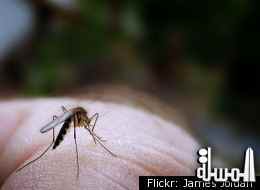
Canadian tourist caught rare virus in Thailand
Almasalla Travel News – A Canadian woman has been diagnosed with a rare virus after she returned from a trip to Thailand according to public health authorities. The woman from the western province of Alberta tested positive.
The 45-year-old woman reported having sustained numerous bug bites during a trip to Bangkok and Phuket in January. The Zika virus is usually spread by mosquitoes. She became ill after returning to Canada.
Human infections with the Zika virus have been reported from parts of Africa and Asia. Like the West Nile or dengue fever viruses, it is transmitted to people by a number of mosquito species.
Along with other viruses in this family, Zika virus is enveloped and icosahedral with a non-segmented, single-stranded, positive sense RNA genome. It is most closely related to the Spondweni virus and is one of the two viruses in the Spondweni virus clade.[1] The virus was first isolated in 1947 from a rhesus monkey in the Zika Forest of Uganda, Africa and was isolated for the first time from humans in 1968 in Nigeria.[2] From 1951 through 1981, evidence of human infection was reported from other African countries such as Uganda, Tanzania, Egypt, Central African Republic, Sierra Leone and Gabon, as well as in parts of Asia including India, Malaysia, the Philippines, Thailand, Vietnam and Indonesia.[2] It is transmitted by mosquitoes and has been isolated from a number of species in the genus Aedes – Aedes aegypti, Aedes africanus, Aedes apicoargenteus, Aedes furcifer, Aedes luteocephalus and Aedes vitattus. Studies show that the extrinsic incubation period in mosquitoes is about 10 days.[2] The vertebrate hosts of the virus include monkeys and humans.
The pathogenesis of the virus is hypothesized to first infect dendritic cells near the site of inoculation, and then spread to lymph nodes and the bloodstream.[1] In terms of replication, flaviviruses generally replicate in the cytoplasm, but Zika virus antigens have been found in infected cell nuclei.
Common symptoms of infection with the virus include mild headaches, maculopapular rash, fever, malaise, conjunctivitis, and arthralgia. The first well documented case of Zika virus was in 1964, beginning with a mild headache and progressing to a maculopapular rash, fever, and back pain.[2] Within 2 days, the rash was fading, and within 3 days, the fever was gone and only the rash remained.[2] There is no vaccine or preventive drug for Zika virus, and only treatment of symptoms is possible. Usually non-steroid anti-inflammatories and/or non-salicylic analgetics are used.
The first outbreak of the disease outside of Africa and Asia was in April 2007, on the island of Yap in the Federated States of Micronesia. This virus was characterized by rash, conjunctivitis, and arthralgia, and was initially thought to be dengue. The Chikungunya and Ross River viruses were also suspected.[3] However, serum samples from patients in the acute phase of illness contained RNA of Zika virus. The Zika fever disease process was relatively mild: there were 49 confirmed cases, 59 unconfirmed cases, no deaths and no hospitalizations.
Zika virus could be considered an emerging pathogen, as it spread outside Africa and Asia for the first time in 2007.[2] Thus far, it has been a relatively mild disease with limited scope, but its true potential as a virus and as an agent of disease is currently unknown.
Human to human transmissionIn 2009, it was proved that Zika virus can be sexually transmitted between humans. Professor Brian Foy, a university biologist from the Colorado State University at the Arthropod Borne and Infectious Disease Laboratory, visited Senegal to study mosquitos and was bitten on a number of occasions during his research.
A few days after returning to the USA he fell ill with Zika, but not before having vaginal intercourse with his wife. His wife subsequently showed symptoms of Zika infection, along with extreme sensitivity to light. Foy is the first person known to have passed on an insect-borne virus to another human by sexual contact.
Source : e torbo news








